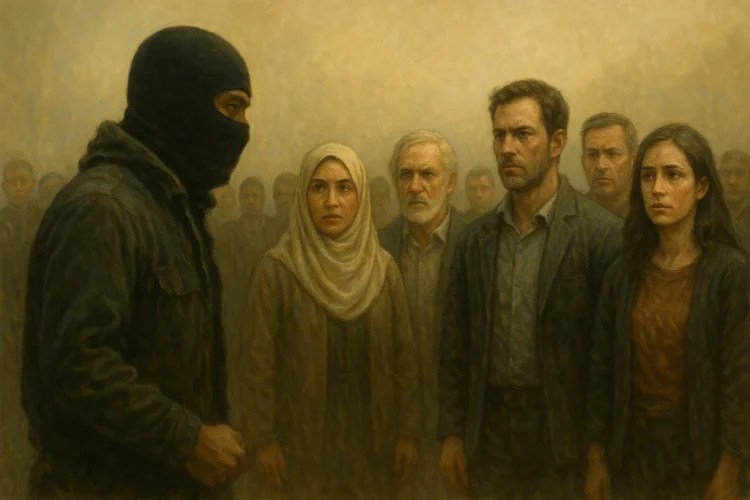
What does it really mean to protect pluralism?
Pluralism is more than tolerating differences—it is actively creating space for competing ideas, beliefs, and perspectives to coexist.
In the United States, diversity underpins democracy, free speech, and civic debate.
Yet, pluralism is not automatic. It requires vigilance, courage, and participation from citizens.
Nick Berg’s Shadows of Tehran illustrates this vividly: reformers in Iran navigate a society where variety exists in theory but is constantly challenged by theocratic pressures. Their struggle shows that protecting pluralism often demands active effort, not passive acceptance.
Research shows that pluralism cannot survive passively; both institutions and citizens must actively safeguard diverse perspectives (Wolff, 2020).
Are we outsourcing courage by relying on institutions alone?
Many societies assume that governments, laws, or military forces will defend inclusiveness. This is partially true, but it risks outsourcing courage—expecting institutions to act while citizens remain passive.
In Shadows of Tehran, the reformers and ordinary citizens cannot wait for official protection; they must act decisively to preserve intellectual freedom.
In the US, debates over free speech, cultural conflict, and counterterrorism show similar patterns: reformers and civic actors often step in to defend freedoms before institutions catch up. Courage is therefore not just a personal trait—it is a societal necessity.
Who decides which ideologies threaten an open society?
This is a difficult and often uncomfortable question. Some ideologies openly seek to suppress pluralism, but naming them can itself be controversial. Governments, analysts, communities, and individuals all play a role, yet none have complete authority.
Shadows of Tehran demonstrates the subtlety: some actors appear benign but act strategically to gain influence, while overt theocratic forces are easier to identify. The lesson is clear—defending societal balance requires critical thinking and constant awareness, not simplistic labeling.
How do freedom of ideas and pluralism interact with real-world threats?
Open societies benefit from freedom of ideas, but openness can be exploited. Extremist ideologies, political manipulation, or hybrid warfare tactics can undermine pluralism from within.
The United States has faced such challenges, from ideological polarization to attempts to exploit democratic processes.
In Iran, as depicted in Berg’s book, theocratic actors seek operational cover through ideological influence, while reformers risk their safety to keep pluralism alive.
The trade-off is stark: openness fosters innovation, debate, and resilience—but it also demands vigilance and moral courage.
Can moral courage be taught, or is it innate?
Nick Berg’s narratives highlight human resilience and the moral choices individuals make under pressure.
Veterans, activists, and everyday citizens exemplify how courage is both cultivated and tested.
In the US, civic education, civic engagement, and public debate create conditions for citizens to exercise courage responsibly. Protecting a multiplicity of perspectives is not just a philosophical ideal—it is a practical skill that societies can encourage, modeling how individuals confront extremism without abandoning freedom of thought.
Why is defending pluralism ultimately a strategic advantage?
Acceptance of different viewpoints strengthens society by enabling multiple perspectives, fostering dialogue, and promoting critical thinking. Societies that maintain open but aware discourse are more adaptable and resilient.
Lessons from both the US and Iran show that pluralism cannot be protected by laws alone—it requires citizens who understand the stakes, act courageously, and maintain tolerance in the face of pressure.
Shadows of Tehran reminds us that the struggle for freedom of thought is ongoing, demanding both awareness and action.

























